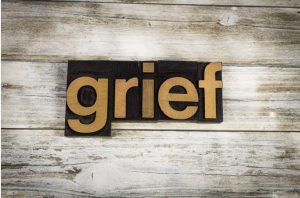Grief: Lessons learned from a Hospice Social Worker
Words like grief and hospice often ignite painful emotions or memories. That is because often these words are associated with a traumatic event, an unimaginable loss, feelings of being left behind, or fear. Here are a few of the things I have learned about death and dying throughout my time as a hospice social worker.
Talk about it
People that are going through a major illness can often feel isolated in their own feelings. Sometimes this is due to their own grief and fears of what is going on in their life and with their illness. And other times, it is because no one wants to have real and scary conversations with them. People that are facing scary things need to talk about those feelings and fears, they need to feel that someone hears them and validates those feelings. The hard thing is that those who are the loved ones feel that they don’t have answers or words of wisdom that will make them feel better. And that is okay. Sometimes we need to sit with uncomfortable thoughts and feelings because they are real, hard, and scary, but to keep them inside of us is even more difficult. It is understandable to not know what to say or do – just know that it is okay to sit with feelings, hold their hand, cry together, and just be present.
Laughter
I know this one sounds strange, especially if you are in the middle of grief. Sometimes conversations don’t have to be about all the scary things of life, and it is okay to engage in old stories, share recipes, laugh at things you have done together, or look at old photos. From time to time, it’s okay to release some of the heaviness and reminisce. And if you have already lost someone, continue to share the stories of their life and let the memories be a comfort.
Guilt and Shame will surface
No matter how much we did for the person in our life and how much we logically know there is not one thing we could have done differently to change the outcome, guilt and shame can surface. This is often seen as survivors guilt or caregivers guilt. This is present in a lot of grief, but during hospice care and long term illness caregiving, it is very prevalent. While this is a normal reaction to loss, it does not feel normal to the person experiencing it and it is extremely difficult to address.
Counseling helps
Loss in life is an expected reality that everyone will experience at some point in their lives, so often we minimize our feelings because “everyone goes through this” or some other kind of justification. While this is true, grief is still significant, painful, and deeply personal to each person. There is no “one size fits all” when it comes to losing a loved one. Often times, those who are in the depths of grief feel that they can’t talk to anyone about it, maybe the people they would normally go to are also feeling the grief, so we “don’t want to bother anyone” or even worse, some people will invalidate those feelings and tell them to just get over it. In counseling we can help you navigate through the murky waters of grief and help you find ways to cope with the loss while still being able to cherish memories. Our team of therapists at 360 Counseling are well trained and ready to help you.
Author
Beth Polifrone, LCSW


Leave a Reply